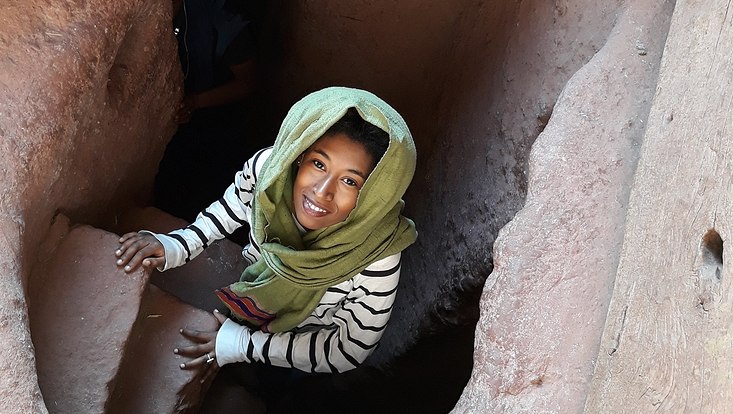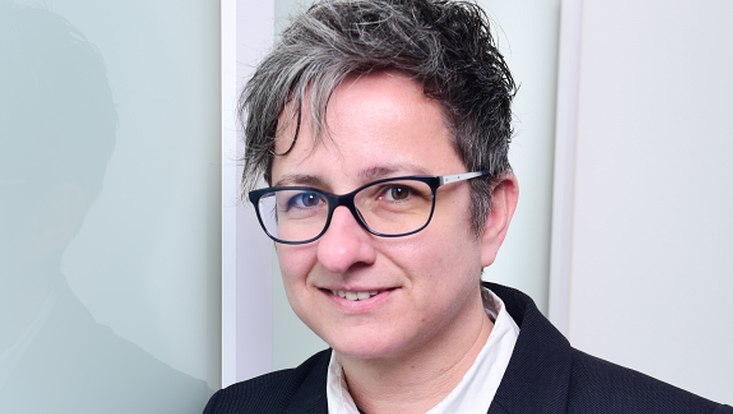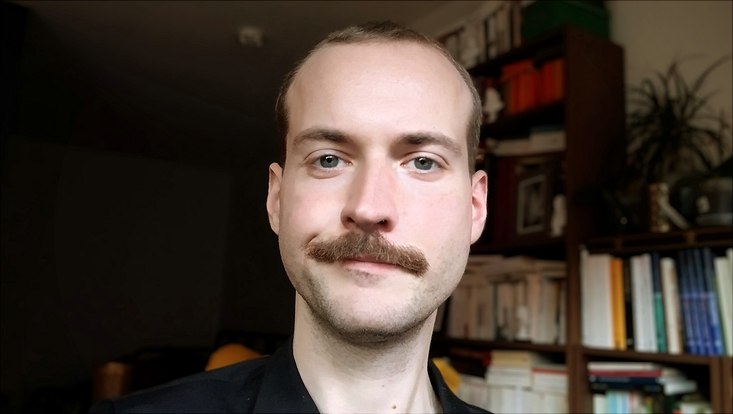“Welcome Aboard!”“History should be studied with the utmost objectivity as the past is always, very, complicated.”Prof. Dr. Hewan Semon Marye will strengthen the Humanities
4 May 2023, by Marye/Red.

Photo: Yirga Woldeyes
Every year, Universität Hamburg welcomes many new researchers. Here, we present part of a series to introduce them and their areas of research. This time: Prof. Dr. Hewan Semon Marye
Prof. Dr. Hewan Semon Marye has been working in the Faculty of Humanities since Summer Semester 2023 as a Professor for „Äthiopistik, insbesondere Gegenwartsfragen Nordostafrikas“
My research area in 3 sentences:
I study the history of modern Ethiopia, a period spanning from the mid nineteenth century until contemporary times. My research thus far has been about state and society relations. But I am now much more interested in the project of modernization the country embarked upon in the late nineteenth century and the various aspirations, deliberations and (im)practicalities of its implementation.
I explain what I do to my family as follows:
I research and teach about the various challenges, changes and upheavals as well as the persisting questions that have plagued Ethiopia over the past two hundred years. I ask what the political elite’s aspirations have been and what the various people’s demands and quests were. Another question I’m interested in is to what extent the question of modernizing Ethiopia was genuine as a state-backed project; and what makes the question still of interest in contemporary times. I also study in what ways inter-continental and international forces and aspirations affect internal aspirations.
I am so glad to be in Hamburg, the city and the University, because. . .
Besides the charm of the city of Hamburg, it is home to the internationally leading institution of Ethiopian and Eritrean studies, the HLCEES (Hiob Ludolf Centre for Ethiopian and Eritrean Studies). Getting to work with individuals who are prolific for their expertise in Ethiopian and Eritrean history, philology, art history, political history and the like is one of the appeals of researching and teaching at Hamburg. I am also excited to be re-joining scholars of the Asia-Africa Institute as a colleague, where I was once a student doing my PhD.
The things I would love to establish or improve (in relation to transfer, teaching, for example) include. . .
Though there is an already established centre that teaches and researches Ethiopian and Eritrean history, the HLCEES has predominantly focused on the late antique to medieval periods (with emphasis on manuscript traditions and philology). I plan to teach and research about the modern period of the history of the region. This refers to the period starting with 1855 until contemporary times, and about topics ranging different cultures, religions, traditions, and various historical interpretations. Students interested will now have the option of studying, researching and working on this time period.
Students should definitely attend my courses because. . .
I plan to give seminars which revolve around these three categories: 1) Empires, Nations, Governance, Encounters; 2) Cultures, Traditions, Ideas; 3) Economic and Social Justice, and Inequalities. In addition to learning about a country that boasts over a millennia long history with its own tradition of historical documentation and home to ancient religions and cultures, my courses will allow students to read about and study modern Ethiopia through a multi-disciplinary approach. They will provide students with a solid knowledge of history, socioeconomic studies, introduction to cultural phenomena, and the educational and legal traditions of countries of the Horn and Ethiopia and Eritrea in particular.
Reaching out to the world: I work with the following international and federal institutions and universities. . .
My undergraduate and graduate studies in the United States (Amherst College) and England (University of Oxford) have allowed me to cultivate research contacts with researchers and educators working in various ways on the African continent or particularly on Ethiopia. The Anglo-Ethiopian Society is an example. I also have contacts with specialists working on Ethiopia from Australia and France.
My brief stay in Ethiopia after completing my Doctoral studies also allowed me to form connections with the Addis Ababa University, Bahir Dar University, Gondar University and Woldiya University. I am keen to build upon these relationships by organizing conferences and working together on research projects. I also intend to invite interested collaborators as guest lecturers. This can be done via online platforms and can be beneficial to students while also making Universität Hamburg a point of connection for international researchers.
My research is important to society, to help resolve the following issues:
Thanks to social media (internationally) and a radically ethnicized politics (internally, in Ethiopia) history is incredibly politicized. Part of my work and research on Ethiopian history is driven by the need to demonstrate that history should be studied with the utmost objectivity as the past is always, very, complicated. I want to show that historical interpretations and debates should be done with care as the field of inquiry deserves minute attention to detail and a vast reserve of patience when dealing with characters and figures who are no longer here to speak for themselves and their actions. This might help students develop the necessary distance, patience and open-mindedness when studying the past; qualities that should be cultivated and allowed to grow in a time where sensationalizing (of many things in life) is mainstream.
My plans for working at Universität Hamburg include:
Beyond completions of projects and monographs started before getting to Hamburg, I have two major research plans I intend to begin while in Hamburg.
The first is working on the writings of the two early twentieth century Amharic newspapers. These are the አእምሮ Aʾǝmǝro ‘Knowledge’ and ብርሃንና ሰላም Bǝrhanǝnna sälam ‘Light and Peace’ newspapers, which contain prose writings, literary narrations and poetry. Predominantly, literate enthusiasts and intellectuals alike wrote about European style modernization and Ethiopia’s relationship with Europe. Some even held debates about multiple processes of development. These publications also served as the actual forum for literary studies and criticism, and the development of the Amharic language as a mature medium of expression in these fields. I plan to study the socio-cultural and intellectual context of the period from the contributions in the newspapers as well as to understand Ethiopian history through the questions and issues that preoccupied literate Ethiopians at the time.
The second is writing the biography of Ras Mäkwännǝn, the father of the last emperor of Ethiopia, Emperor Ḫaylä Śǝllase I (r. 1930–1974). Ras Mäkwännǝn served as the right-hand man of Emperor Mǝnilik II (1844–1913), and as Ethiopia’s foreign minister at the time. He is remembered for his military expertise, knowledge of the country’s terrains, and his commanding of the forces of Ethiopia during the Battle of Adwa in 1896 which stands among his biggest achievements. He occupies a large space in Ethiopian political and military history, and in his undeniable role in shaping his son, the future emperor. This is particularly salient when we observe how attracted his son was to Europe and his devoted attention to international affairs. However, besides a small book written about his life in Gǝ’ǝz, there are few other serious works dedicated to him and his history. Ras Mäkwännǝn’s biography has the ability to place this figure in historical discussions, while illuminating the social changes and thoughts of his time, the legal tradition at his court and Ethiopia, the early modern times of Ethiopia and its relationship with the West during his life.
Endowed professorship from the DeutschÄthiopischenStiftung
The junior professorship was set up as an endowed professorship and will be financed by the DeutschÄthiopischenStiftung for 6 years. The foundation fosters scientific pursuit and research in Ethiopian and North-East African studies. Against the backdrop of social change in North-East Africa societies, the foundation focuses on supporting intellectual and cultural development at the Horn of Africa. "Having researchers from Africa researching and teaching at a German university is ideal for discussing vital questions about the future of Africa and African-German relations. A pilot project to prepare students for future challenges and to broach our and Africa's viewpoints practically," says Prof. Dr. Dr. Seigbert Uhlig, Universität Hamburg professor emeritus for African languages and cultures with a focus on Ethiopian studies and chair of the foundation.


